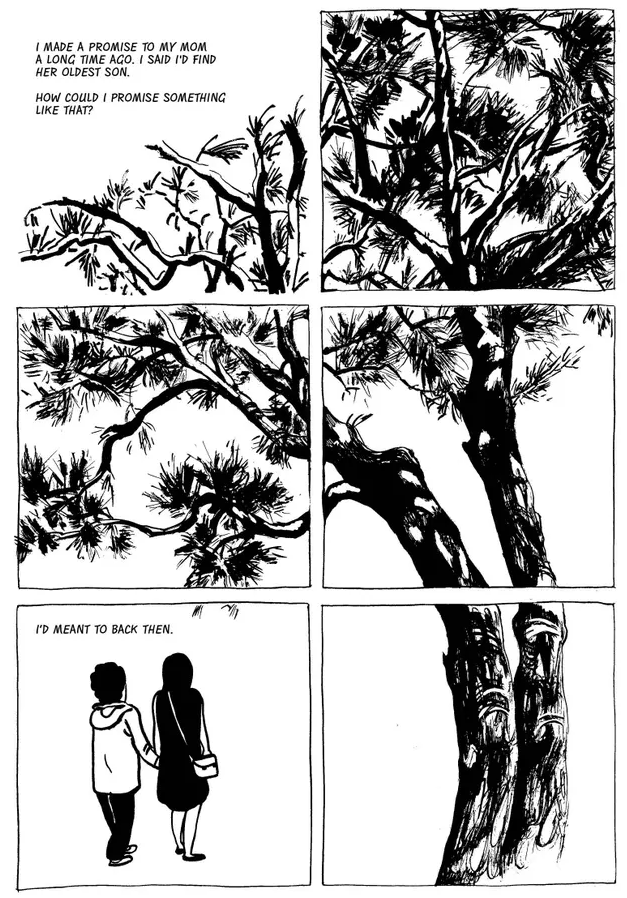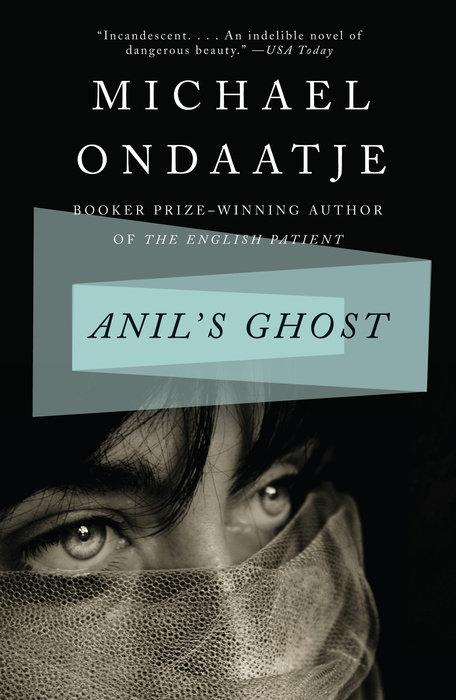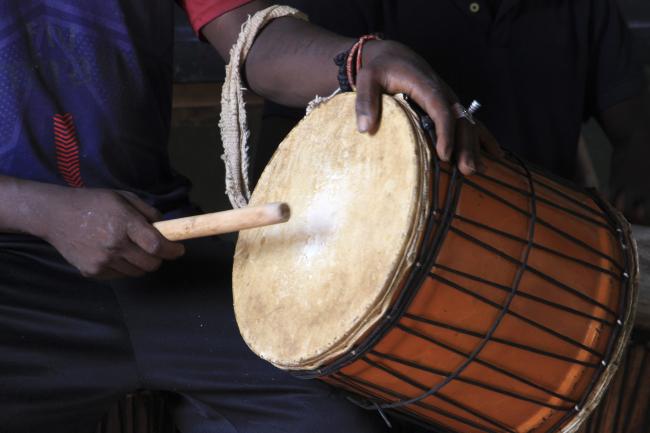ARTS & PHOTOGRAPHY

RECETARIO PARA LA MEMORIA (RECIPE BOOK FOR MEMORY)
A recipe book by women in Mexico honoring their missing loved ones.
“May the kitchen be an excuse to talk about the unspeakable, to make present those who were taken away, to weave actions against absence.”
- Zahara Gómez Lucini

The Waiting by Keum Suk Gendry-Kim
Keum Suk Gendry-Kim was an adult when her mother revealed a family secret: She had been separated from her sister during the Korean War. It’s not an uncommon story―the peninsula was split across the 38th parallel, dividing one country into two. As many fled violence in the north, not everyone was able to make it south. Her mother’s story inspired Gendry-Kim to begin interviewing her and other Koreans separated by the war; that research fueled a deeply resonant graphic novel.
The Waiting is the fictional story of Gwija, told by her novelist daughter Jina. When Gwija was 17 years old, after hearing that the Japanese were seizing unmarried girls, her family married her in a hurry to a man she didn't know. Japan fell, Korea gained its independence, and the couple started a family. But peace didn’t come. The young family of four fled south. On the road, while breastfeeding and changing her daughter, Gwija was separated from her husband and son.
Then seventy years passed. Seventy years of waiting. Gwija is now an elderly woman and Jina can’t stop thinking about the promise she made to help find her brother...
- Amazon Editor's note
NOVELS & MEMOIRS

Anil's Ghost by Michael Ondaatje
Anil’s Ghost transports us to Sri Lanka, a country steeped in centuries of tradition, now forced into the late twentieth century by the ravages of civil war. Into this maelstrom steps Anil Tissera, a young woman born in Sri Lanka, educated in England and America, who returns to her homeland as a forensic anthropologist sent by an international human rights group to discover the source of the organized campaigns of murder engulfing the island. What follows is a story about love, about family, about identity, about the unknown enemy, about the quest to unlock the hidden past–a story propelled by a riveting mystery. Unfolding against the deeply evocative background of Sri Lanka’s landscape and ancient civilization, Anil’s Ghost is a literary spellbinder–Michael Ondaatje’s most powerful novel yet.
- Penguin Random House
Windmills of Our Heart: Women Relatives of the Missing in Lebanon Tell Their Stories
Windmills of Our Hearts is unlike any other book. The authors of the stories are women relatives of people who went missing or were forcibly disappeared during the Lebanese war. “This book was written with the ink of their hearts and the tears of their love and longing,” said Wadad Halwani, head of the Committee of the Families of the Kidnapped and Disappeared in Lebanon and one of the authors. Over the past 12 months, ICTJ has organized a series of creative writing workshops for the 15 women led by Lebanese writer Fatima Sharafeddine. “Pain, hope, and years of struggle appear in these stories,” explained Sharafeddine.
POETRY
DESAPARECIDOS
Están en algún sitio / concertados
desconcertados / sordos
buscándose / buscándonos
bloqueados por los signos y las dudas
contemplando las verjas de las plazas
los timbres de las puertas / las viejas azoteas
ordenando sus sueños sus olvidos
quizá convalecientes de su muerte privada
nadie les ha explicado con certeza
si ya se fueron o si no
si son pancartas o temblores
sobrevivientes o responsos
ven pasar árboles y pájaros
e ignoran a qué sombra pertenecen
cuando empezaron a desaparecer
hace tres cinco siete ceremonias
a desaparecer como sin sangre
como sin rostro y sin motivo
vieron por la ventana de su ausencia
lo que quedaba atrás / ese andamiaje
de abrazos cielo y humo
cuando empezaron a desaparecer
como el oasis en los espejismos
a desaparecer sin últimas palabras
tenían en sus manos los trocitos
de cosas que querían
están en algún sitio / nube o tumba
están en algún sitio / estoy seguro
allá en el sur del alma
es posible que hayan extraviado la brújula
y hoy vaguen preguntando preguntando
dónde carajo queda el buen amor
porque vienen del odio
THE DISAPPEARED
They’re out there somewhere / all assembled
disassembled / bewildered / voiceless
each seeking the others / seeking us
hemmed in by their question marks and doubts
with their eyes on the ironwork in the plazas
the doorbells / the shabby rooftops
sorting through their dreams / forgotten memories
perhaps recovering from their private deaths
no one has told them yet for sure
if they’re gone for good or not
if they’re banners now or tremors
survivors or prayers for the dead
they see trees and birds go by
and wonder which shadows are theirs
when they first started disappearing
three five seven ceremonies ago
disappearing as if they were ghosts
with no trace or face or good reason
they glimpsed through the window of their absence
what was left behind / that scaffold
of embraces sky and smoke
when they first started disappearing
like the oasis in a mirage
disappearing with no last words
they still held in their hands the pieces
of things they loved
they’re out there somewhere / in the clouds or a grave
they’re out there somewhere / of that I’m certain
in the dear southern reaches of my heart
it may be they’ve lost their bearings
and now they wander asking always asking
where the fuck is the road to true love
because they’re coming from so much hate
Mario Benedetti


